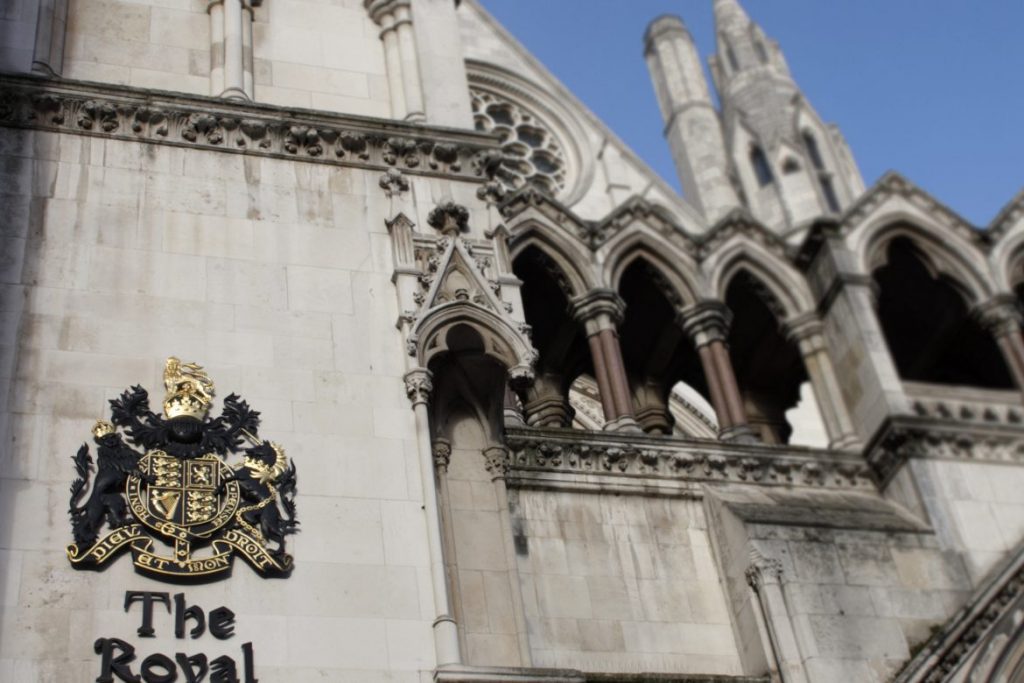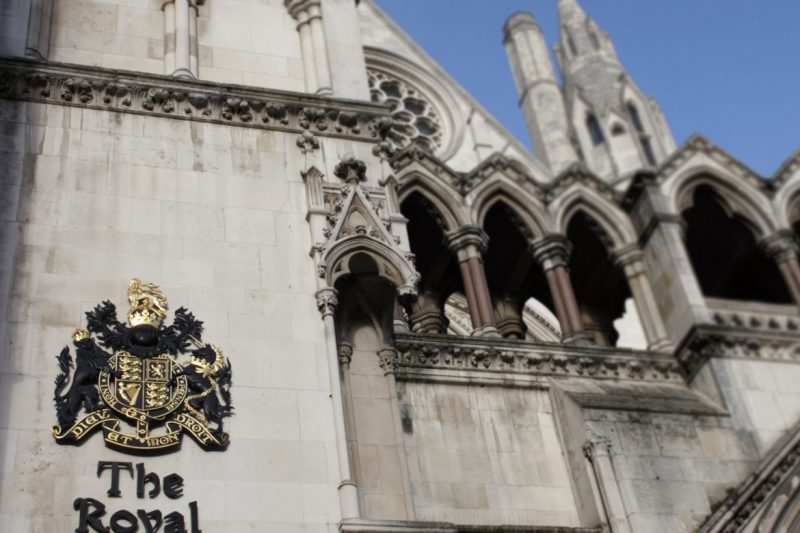Charles Edwards, Barrister and TECBAR Adjudicator, reviews the case of Philpott & Anor v Lycee Francais Charles De Gaulle School [2015] EWHC 1065 (Ch). This case provides useful guidance on the High Court’s approach to an application for directions under Insolvency Rules 1986, r. 4.90 where there is a valid arbitration agreement in the Contract and whether any such application should be stayed under section 9 of the Arbitration Act 1996.
A company now called WGL Realisations 2010 Limited (‘the Company’), entered into a JCT Intermediate Building Contract (with Contractor’s Design) 2005 Revision 1: 2007 with the Respondent on 1st July 2008 (“the Contract”). The Respondent was the Employer under the Contract. As a result of insolvency, the Company went into administration, then voluntary liquidation and then there was a dispute as to whether any monies were due under the Contract on one side or the other. The Applicants were the liquidators of the Company. The Applicants made an application in the High Court (Chancery Division) for directions from the Court in relation to taking account under the Insolvency Rules 1986, r. 4.90 with regard to a proof of debt where there was a dispute as to whether monies were owed by the Company on the one side or the Respondent on the other side. The Applicants’ application to the Court included each party’s position on the final account under the Contract. The Applicants’ position was that the Company was owed approximately £615,000 from the Respondent, whereas the Respondent was of the view that the Applicants owed it in excess of £270,000. The Contract included an arbitration clause. The Respondent’s position was that the arbitration clause was valid and binding upon the parties and that this was a voluntary liquidation. Therefore any legal proceedings commenced by the Applicants would be vulnerable to an application for a stay under section 9 of the Arbitration Act 1996 which the Respondent’s had suggested it would invoke.
The key issue for the Court was whether there was an arbitration agreement which applied under the Contract and whether any legal proceedings would be stayed pursuant to section 9(4) of the Arbitration Act 1996.
The Court reviewed the Insolvency Rules 1986 and stated amongst things that:
“…9. Proof of debts in a liquidation are dealt with in the Insolvency Rules 1986, Part 4, Chapter 9. Section A sets out the procedure for proving. Rule 4.73(2-CVL) provides:
“In a voluntary winding up … the liquidator may require a person claiming to be a creditor of the company and wishing to recover his debt in whole or in part, to submit the claim in writing to him.”…
…
Under Rule 4.82(2):
“If the liquidator rejects a proof in whole or in part, he shall prepare a written statement of his reasons for doing so, and send it as soon as reasonably practicable to the creditor.”
…
“In a voluntary winding up … the liquidator may require a person claiming to be a creditor of the company and wishing to recover his debt in whole or in part, to submit the claim in writing to him.”
….
Rule 4.90(1) provides:
“This Rule applies where, before the company goes into liquidation there have been mutual credits, mutual debts or other mutual dealings between the company and any creditor of the company proving or claiming to prove for a debt in the liquidation.”
It is common ground that Rule 4.90(1) applies here and that the competing contentions of the parties, summarised in Appendix A to the witness statement to which I have referred, reflect such mutual dealings…
Rule 4.90(3) provides:
“An account shall be taken of what is due from each party to the other in respect of the mutual dealings and the sums due from one party shall be set off against the sums due from the other.”…”
Therefore, following liquidation an account should be taken as to what is due to each party, however, the Rule is silent as to what procedure is to be adopted for the purpose of taking that account. The Applicants submitted that the Court had the power under Part 9 of the Insolvency Rules 1986, of which Rule 4.90 is part of in connection with the proof of debt process to give directions as to the taking of an account of the balance due. The Respondent submitted that it would invoke s. 9 of the Arbitration Act 1996 for a stay of any legal proceedings if the Applicants commenced any such proceedings.
The Court considered section 9 of the Arbitration Act 1996 which provides that:
“9 Stay of legal proceedings.
(1) A party to an arbitration agreement against whom legal proceedings are brought (whether by way of claim or counterclaim) in respect of a matter which under the agreement is to be referred to arbitration may (upon notice to the other parties to the proceedings) apply to the court in which the proceedings have been brought to stay the proceedings so far as they concern that matter.
(2) An application may be made notwithstanding that the matter is to be referred to arbitration only after the exhaustion of other dispute resolution procedures.
(3) An application may not be made by a person before taking the appropriate procedural step (if any) to acknowledge the legal proceedings against him or after he has taken any step in those proceedings to answer the substantive claim.
(4) On an application under this section the court shall grant a stay unless satisfied that the arbitration agreement is null and void, inoperative, or incapable of being performed.
(5) If the court refuses to stay the legal proceedings, any provision that an award is a condition precedent to the bringing of legal proceedings in respect of any matter is of no effect in relation to those proceedings…”
The Court, following consideration of the section 9 of the Arbitration Act 1996, was of the view that the application by the Applicants for directions would be legal proceedings and therefore would have to be stayed unless the arbitration agreement was null and void, inoperative, or incapable of being performed (as set out in section 9(4) of the Arbitration Act 1996). The Court further stated that none of the above applied and that the arbitration agreement did not become inoperative following liquidation or in consequence of statutory set off and in any event there was no suggestion by the Applicants that s.9(4) of the Arbitration Act 1996 applied. The Respondent’s position would only be compromised, if section 9(3) of the Arbitration Act 1996 applied and that subsection precluded a stay of application once the person wishing to enforce the arbitration clause had taken “any step in those proceedings to answer the substantive claim”. The mere making of a proof of debt does not come within those words, nor, were the Applicants now to reject the proof, would an appeal from the rejection of that proof, which would be necessary in order to preserve the Respondent’s position, amount to taking a step in “those proceedings”. Therefore, the issue to be decided by the Court was as follows:
“…The real issue I have to decide, as the liquidators wish to adopt alternative and, they say, more economical procedures, is whether or not the Arbitration Act 1996 trumps – an expression that has been used in argument – the taking of an account under the court’s directions, as envisaged by the Insolvency Rules. In my judgment it does…”
The Court stated that any legal proceedings which the Applicants may hereafter wish to bring to ascertain the net balance under the Insolvency Rules 1986, needed to overcome section 9 of the Arbitration Act 1996, which the Respondent had submitted it would invoke. The Court decided that the dispute could only be resolved by some form of proceedings and legal proceedings, if brought, would be subject to the mandatory requirement of a stay under section 9 of the Arbitration Act 1996. Such a conclusion could not be avoided by the presentation of a claim, as a claim for an account in the context of the Insolvency Rules 1986, r.4.90. The taking of the account under the Insolvency Rules 1986, r. 4.90 would require the Court to resolve the underlying dispute which is subject to an arbitration agreement. This highlights importance of arbitration agreements and it is clear that unless one of the statutory exceptions in section 9 of the Arbitration Act 1996 is applicable, the mandatory provisions of section 9 of the Arbitration Act 1996 will apply.
The above is for general information only and to encourage discussion and does not constitute legal advice. The author does not assume any responsibility for the accuracy of any statements made and appropriate legal advice should be taken and relied upon before taking or omitting to take any action in respect of any specific matter.
If the facts and matters referred to above are relevant to you or your organisation, then please do not hesitate to contact me in chambers or directly via LinkedIn to see how I can assist you or your organisation.
Charles Edwin Edwards MSt(Cantab) MSc(Lond) FCInstCES Barrister
NEW TEMPLE CHAMBERS
2nd Floor Berkeley Square House
Berkeley Square
Mayfair
London W1J 6BD
Tel: +44(0)207 887 6098




